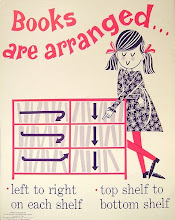It's been a considerable amount of time since I've read this...I fell off the good blogging wagon. :(
Bartholomae: I like this fellow. I suppose I don't really get what's so wrong about teaching academic writing. If it "passes as currency in the academy," (p 62) then teachers would be wrong to pass out Confederate dolla dolla bills (y'all) in lieu of skills that hold value in a community that students will be a part of for at least the next four years. Like it or not, academic writing is something that has proven itself to be useful to students in the past. Is everyone excited about it? Heck no. I happen to kind of like writing academically and even I don't respond "I get to write a thesis statement and support it with reliable, documented sources? Color me PUMPED!" I think Bartholomae is sort of arguing against the "tricking" of students into thinking what they are doing is not academic writing. Kind of like the vitamin pill in the twinkie, so to speak.
I have to agree with what he says about the work of Jane Tompkins and Mina Shaughnessy in that they are advocating (maybe?) that the work their students are doing is more authentic than academic writing. "The danger is assuming that one genre is more real than the other ( a detailed, loving account of the discourse on domesticity found in 19th century American women's magazines) - in assuming that one is real writing and the other is only a kind of game academics play."(69). Word, St. Bartholomae. "True" that. One time in class, Shipka was reading a list about what some people considered qualities of good writing. One that kept popping up was "honesty." Like, "I felt they were writing from the heart." or "Their writing was so completely honest." What does that mean? Does that speak to the authenticity of the piece? Who is writing inauthentic texts that we need to be so concerned with how "honest" something is? I'm confused by this whole idea, I guess. (I feel like I've blogged about this issue before, but I don't feel like going back and checking. You'll have to deal with my repetition.) Last word on Bartholomae: "You have to learn to write like E. B. White before you can learn to write like Gertrude Stein. Picasso couldn't have been a cubist if he hadn't learned to draw figures." (70) Yeah, totally. That's what I've been saying!
Elbow: Is Peter Elbow adorable? I just have a feeling he is. (Shipka, if you know the answer to this...don't tell me. Let a girl dream.)
Why is there a conflict between the role of the writer and the role of the academic? What defines an academic? Constraints of assignments or goals? Need for focus? How is that different from the definition of a writer? To me, even writers are working under the constraints of many things...language, background knowledge, audience, maybe publishability (who knows?). I guess I don't get why there has to be a stark contrast between these two roles or why they have to conflict at all. I feel like Bartholomae and Elbow really want to have them not conflict, and yet they insist they do. Elbow has a good point about approaching texts "We must try to come at these strong important texts: - no matter how good or hallowed they may be - as much as possible as fellow writers - as fully eligible members of the conversation: not treat them as sacred: not worry about "doing justice" to them or getting them dirty." (74) Point well taken. I agree with the "conversation" metaphor as well, and I think that academic writing can accomplish this.
I'm going to conclude this, because I don't know what else to say that hasn't already been addressed in other blogs. It looks like Bartholomae wants to tell his students to understand that they are just a small drop of water in the big, wide literature ocean. You know, be aware of your own ineffectuality. Elbow insists that students should believe themselves to be the next T.S. Eliot or something, that everything they write should be with the notion that it is utterly groundbreaking. My thoughts about student writing fall somewhere in between. Somewhere waaaay in between.
P.S. I found a note I wrote to myself when I first read this back in March. I was reading it at my local pub and I was overhearing conversations all night from the people around me. Here goes:
"Since when did the phrase 'Being real' replace 'Being yourself?'" If anyone can answer this, I'd be grateful.
Subscribe to:
Post Comments (Atom)

No comments:
Post a Comment